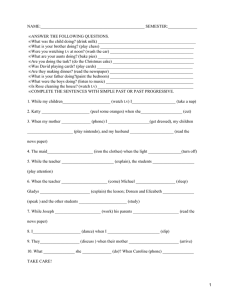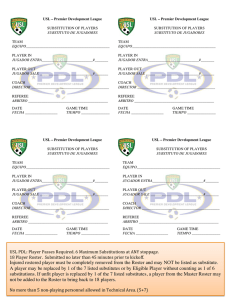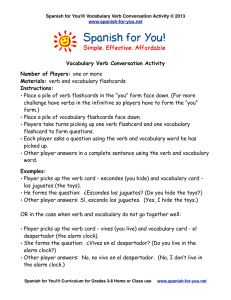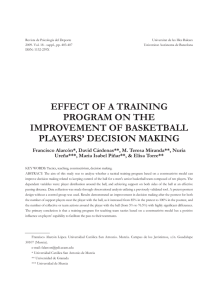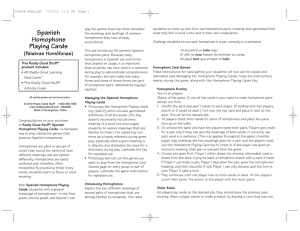Tanto Cuore - Japanime Games
Anuncio
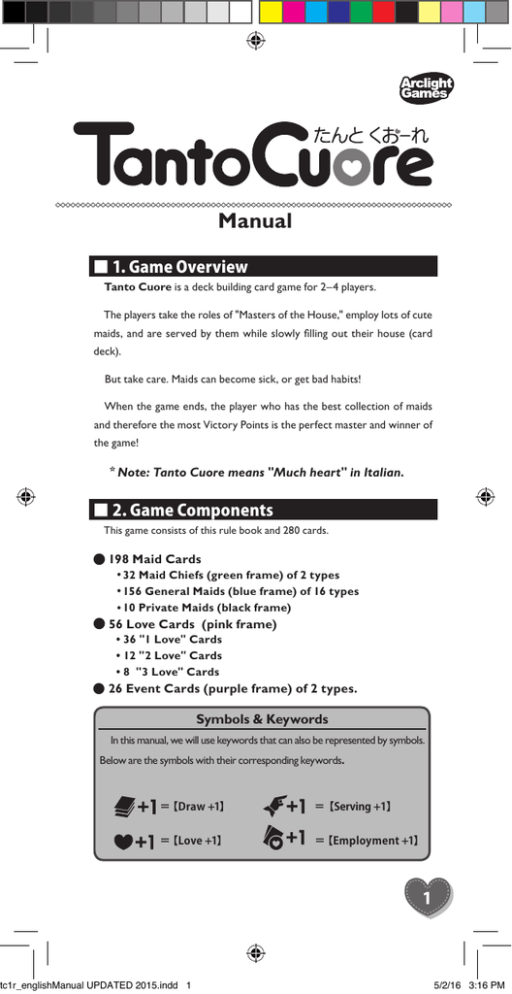
Manual ■ 1. Game Overview Tanto Cuore is a deck building card game for 2–4 players. The players take the roles of "Masters of the House," employ lots of cute maids, and are served by them while slowly filling out their house (card deck). But take care. Maids can become sick, or get bad habits! When the game ends, the player who has the best collection of maids and therefore the most Victory Points is the perfect master and winner of the game! * Note: Tanto Cuore means "Much heart" in Italian. ■ 2. Game Components This game consists of this rule book and 280 cards. ● 198 Maid Cards ・32 Maid Chiefs (green frame) of 2 types ・156 General Maids (blue frame) of 16 types ・10 Private Maids (black frame) • 36 "1 Love" Cards • 12 "2 Love" Cards • 8 "3 Love" Cards ● 56 Love Cards (pink frame) ● 26 Event Cards (purple frame) of 2 types. Symbols & Keywords In this manual, we will use keywords that can also be represented by symbols. Below are the symbols with their corresponding keywords. =【Draw +1】 =【Serving +1】 =【Love +1】 =【Employment +1】 tc1r_englishManual UPDATED 2015.indd 1 1 5/2/16 3:16 PM ■ 3. Setup and Terminology Players sit around the game table. Place all of the available cards in the middle of the table; this is called the "Town." Each player should have enough table space in front of him to play his cards. This is called the player’s "House." Each player’s house consists of the player’s personal draw deck (called the waiting room), discard pile (called the kitchen entrance), play area (where cards are played), and the player’s private quarters (an area for cards that you own but that are set aside). • Firstly, sort out the maid chiefs "Marianne" and "Colette" and place them in one stack each in the middle of the table (in the town). • Second, sort out the "Illness" and "Bad Habit" event cards, and place them in one stack each in the town. • Third, sort out the three Love cards "1 Love," "2 Love," and "3 Love," and place them in one stack each in the town. • Fourth, take all 10 Private Maids, shuffle them, and place them in one pile face down in the town. Draw the top 2 cards from that pile and place them face up beside the pile. • Finally, select 10 of the 16 General Maids, randomly or by choice, and place them in ten stacks in two rows of five each in the town, preferably sorted by cost (the number in the top right of each card). Any combination of General Maids is okay. Unused General Maids go back in the box, and are not used in the game. Recommended Selection for the First Game Azure Crescent Geneviève Daubigny Viola Crescent Moine de Lefèvre Rouge Crescent Tenalys Trent Safran Virginie Sainsbury Lockwood Kagari Ichinomiya Anis Greenaway 2 tc1r_englishManual UPDATED 2015.indd 2 5/2/16 3:16 PM Each player now takes 7 "1 Love" cards and 3 "Colette" cards, and shuffles them thoroughly. This is their deck. They then draw the top 5 cards and keep them in their hand. To play cards from his hand onto the playing area represents being served by that maid. Each player’s discard pile, where that player discards cards, is also where newly bought cards are placed. To get rid of or fire staff means to return it to the town. Set-up Example Player 1’s House The Town Private Maid Private Maid Player 4’s House General Maid General Maid Illnesses General Maid General Maid Bad Habits General Maid General Maid Colette General Maid General Maid Marianne General Maid General Maid 1 Love 2 Love 3 Love Players’ Decks Player 2’s House Private Maid (Face down) Players’ Decks tc1r_englishManual UPDATED 2015.indd 3 Player 3’s House 3 5/2/16 3:16 PM ■ 4. The Flow of the Game Pick a starting player in any suitable fashion. Players take turns, with the starting player taking the first turn. Each turn consists of the following four phases (described in detail later in the rules): 1) Starting Phase (a.k.a "The start of your turn." Certain set-aside cards activate their effect here.) 2) Serving Phase (Main game; playing maid cards) 3) Employ Phase (Play Love cards and employ new staff) 4) Dismiss Phase (Dismiss used staff and draw a new hand) When a player finishes all four phases, the next player clockwise from him takes his turn. This continues until the game ends, at which point Victory Points are calculated and the winner is decided. ■ 5. The Cards There are three types of cards in this game: Maid Cards, Love Cards, and Event Cards. ● Maid Cards There are three types of Maids: Maid Chiefs, General Maids, and Private Maids. Maid Chiefs (green frame) mainly serve to generate Victory Points, and have little effect during the game. General Maids (blue frame) are the cards that form the core game. You play these during your Serving Phase. Private Maids (black frame) are a bit special; they never enter the discard pile or deck. Instead, they are always chambermaids, i.e. sitting beside your play area. They are described later in the rules. Playing a maid card from your hand (being served by a maid) costs one Serving. Each player has one Serving per turn, so the player can only be served by one maid per turn. Certain maids generate more Servings, and will thus allow the player to be have more maids to serve them. ① Maid's Title ② Card Name ③ Employ Cost The amount of Love required to employ this maid from the town. 4 tc1r_englishManual UPDATED 2015.indd 4 5/2/16 3:16 PM ④ Victory Points The number of Victory Points this maid is worth. ⑤ Symbol: Draw The number of extra cards the player draws when being served by this maid. ⑥ Symbol: Love The amount of extra Love this maid generates when played. This Love is used along with Love gained from Love cards to Employ more maids. ⑦ Symbol: Serving The number of extra Servings this maid generates. More Servings lets you play more maids. ⑧ Symbol: Employment The number of extra Employments this maid generates. Extra Employments let you Employ multiple maids during your turn. ⑨ Maid Category ⑩ Maid Ability Text describing the effect the maid has. Note: "Maids" in these rules refers to general maids, maid chiefs, and private maids. Love cards are not maids, though they are part of the staff. Title Card Name Victory Points Employ Cost Maid Category Draw Love tc1r_englishManual UPDATED 2015.indd 5 Serving Employment Ability 5 5/2/16 3:16 PM ● Love Cards Love cards generate Love points that are used to employ new staff (buy new cards). They are mostly played during the Employ Phase, but can generally be played at any time. During a turn, a player may play as many Love cards as he wishes to add to his current Love (he may have gained some Love from the maids he played during the Serving Phase). No Servings are needed to play Love cards. A "1 Love" card will give 1 Love, a "2 Love" card will give 2 Love, and a "3 Love" card will give 3 Love. Love is not kept between turns. Any unused Love is lost when the player’s turn ends. ① Card Name ② Employ Cost The amount of Love required to employ this card from the town. Employ cost Card name 6 tc1r_englishManual UPDATED 2015.indd 6 5/2/16 3:16 PM ● Event Cards Event cards are bad cards that give negative effects to the owner. They are employed during the Employ Phase just like other cards, but they usually don’t go into the player’s decks. Instead, they are placed onto any player’s Private Quarters or Chambermaid. (Chambermaids are maids that have been sent to the players Private Quarters; more on that later.) A player who receives this card becomes the owner of the card and suffers its effects. ① Card Name ② Employ Cost The amount of Love required to employ this card. ③ Victory Points ④ Event Effect The effect the card will have when employed and/or owned. Employ Cost tc1r_englishManual UPDATED 2015.indd 7 Card Name Victory Points Event Effect 7 5/2/16 3:16 PM ■ 6. Phase Details ● 6 -1: Starting Phase During this phase, effects from certain Private Maids and Event Cards take place. Each Private Maid has the timing of her effect noted on the card, and their effect can only take place once per turn. Private Maids who are ill do not generate their effect. A player who has an Illness card placed on any of his Private Maids may, during the Starting Phase, dismiss a "3 Love" card in order to get rid of the illness (return it to the town). A Private Maid can use her effect immediately after getting rid of her Illness. ● 6 -2: Serving Phase During this phase the player plays (is served by) General Maids (and sometimes even Maid Chiefs) to gain their effects. Being served by a maid costs (unless stated otherwise) one Serving, and each player gets only one Serving at the start of his Serving Phase. This means that each player can only be served by one maid per turn, unless he is served by a maid that generates more Servings. Please note that only playing maid cards from your hand costs Servings. When a player is served by a maid, he first receives the bonuses described by the symbols on the card: Draw, Servings, Love, and Employments. Of these, Draw is used immediately; the player must draw the specific number of cards from their deck as soon as he receives Draw bonus. If there are any maids among the cards the player draws, they may be used during the same Serving Phase (provided the player has Servings left). Servings, Love, and Employments, though, remain for the rest of your turn. Servings must be used during the Serving Phase, and Employments and Love during the Employ Phase, but they do not need to be used immediately. However, no Servings, Love, or Employments carry over into the next turn; they are all lost in the players’ Discard Phase. Any text on the maid card is resolved after the player has received the symbol bonuses. Certain maids may, instead of serving the player, become chambermaids. To chambermaid a maid means to set her aside from the playing area, in the player’s Private Quarters (the area beside the play area, reserved for set-aside cards). Chambermaids will not be discarded 8 tc1r_englishManual UPDATED 2015.indd 8 5/2/16 3:16 PM during the Discard phase, but the player retains ownership. For details, see "7. Chambermaids." If nothing else is stated, the Serving Phase ends when the player decides to end it. It usually ends when the player has no more Servings or maids available to play, but any effects that must take place during the Serving phase may still be applied even if the player has no Servings left. As stated earlier, Servings do not carry over to the next turn. ● 6 -3:Employ Phase After the player has been served by his maid(s), he may employ staff from the town, which means buying a card from the town. A player can only employ 1 staff member per turn, unless maid effects have increased this number. To employ a card, the player must have the necessary amount of Love to give to the new staff member. During the Employ Phase, a player can play any amount of Love cards from his hand to add to any Love he might have gained from being served by maids during the Serving Phase. It does not cost any Servings to play Love cards. Employing one staff member costs also 1 Employment. Each player gets only 1 Employment at the start of each of his Employ Phases, which means he can employ at least 1 staff member per turn. However, if the player has gained more Employments from maid effects, he can employ as many as his available Employments and Love allow. If a player wants a Private Maid, he can only employ one of the two face-up Private Maids. As soon as anyone employs a Private Maid, draw the next card from the Private Maid stack to replace her. Newly employed General Maids and Love go to your discard pile, not your hand. Private Maids go to your Private Quarters, and Events go to any player’s Private Quarters, unless specifically stated otherwise. The Employment Phase ends when the player runs out of Employments or Love, or when they decide to end it. ● 6 -4: Discard Phase This is the final part of a player's turn. All staff that served the player, and any cards still in his hand, are discarded (i.e., all played cards and cards left in his hand are put in his discard pile). However, the staff in the player’s Private Quarters (Private Maids, Chambermaids, Event Cards, etc.) stay where they are, they are not dismissed. tc1r_englishManual UPDATED 2015.indd 9 9 5/2/16 3:16 PM Next, the player draws 5 new cards from his deck. If the deck runs out of cards, the player draws as many as he can, then shuffles all of the cards in his discard pile together and draws additional cards until they have a hand of 5. Any remaining Love, Servings, and Employments are lost at this point. They do not carry over to the next turn. Reshuffling the Deck: You don’t reshuffle your discard pile until you must draw a card and your deck is empty. If you have zero cards left in your deck, do not shuffle your discard pile until you are required to draw a card. ■ 7. Details: Chambermaids Certain maids have the title Chambermaid or Chambermaid Chief. These can become Chambermaids, which means they can be set aside of the playing area, in the player’s Private Quarters, instead of serving the player. None of their bonuses or effects will happen, and they and will not be discarded in the Discard phase. They will stay in the player’s private quarters until the end of the game or some effect removes them. The player retains ownership and any Victory Points are still valid. To Chambermaid a maid usually costs 1 Serving, but chambermaiding a Maid Chief can cost 2 Servings. It will be noted on the card. Some Chambermaids have a Chambermaid Bonus. The Chambermaid Bonus only applies when the maid is a chambermaid, and can thus does not activate if you are served by her normally or, in the case of end-game Victory Point bonuses, she is in your deck, discard pile, or hand when the game ends. 10 tc1r_englishManual UPDATED 2015.indd 10 5/2/16 3:16 PM ■ 8. Details: Private Maids Private Maids can be seen as instant chambermaids. Once employed, a Private Maid goes straight to your private quarters and will generate her effect once (and only once) each turn. Some Private Maids are sent to other players’ Private Quarters instead, and can generate negative effects. They can never be discarded or shuffled into your deck. A player may only employ (or gain from a card effect) one of the two faceup Private Maids. Any time a player employs one of them, draw the next Private Maid from the stack in town (if possible) to replace her. Gaining the effect of a Private Maid does not cost any Servings. Each Private Maid effect has its own timing, please refer to the card text. Also, please note that the symbol bonuses on Private Maids are sometimes conditional; again, refer to the card text. A player may employ any number of Private Maids but each player can only have one active Private Maid at any given time. If a player with a Private Maid gains a new Private Maid, the new maid is placed on top of his former one, who loses all her effects except her VP and end game bonuses. The player may not change the order of his personal stack of Private Maids. ■ 9. Details: Events Events are cards with bad effects that are put into a players Private Quarters (onto a Private Maid/Chamber maid). You can even put an event on your own private quarters if you wish. If an Event card would be discarded, it is returned to town. If the town runs out of an event card, no more can be played until one is returned to town. ● 9-1 Bad Habits A Bad Habit card must, when employed or gained by a card effect, be sent into Private Quarters containing at least one Private Maid, Chambermaid, or Chambermaid Chief. The active player decides which player should get the Bad Habit. The player who receives the Bad Habit cannot refuse it, unless he has a card in his hand which allows him to (like Claire). There is no limit as to how many Bad Habits a player can have. tc1r_englishManual UPDATED 2015.indd 11 11 5/2/16 3:16 PM ● 9-2 Illnesses An Illness must, when employed, be played onto a Private Maid, a Chambermaid, or a Chambermaid Chief; the active player decides which. The player who receives the Illness cannot refuse it, unless he has a card in his hand which allows him to (like Claire). The Illness card is placed on top of the Private Maid or the Chambermaid (Chief). Only the top Private Maid in a player’s Private Maid pile can be made ill. Players may place Illnesses on their own private maid if they wish. It is possible to play multiple Illnesses on one maid. A Private/Chambermaid who is ill loses all of her abilities and does not grant any VP. She counts as though she’s not there, though an ill Private Maid still blocks the power of any Private Maids beneath her. A player may discard a "3 Love" card during his Starting Phase, or be served by Claire during the Serving Phase, in order to get rid of an illness. A Private/Chambermaid who gets rid of her illness may immediately generate her effect, provided the timing allows. ■ 10.Example of Play Raoul, Baron and Claris are playing the game. It’s Raoul’s turn. Raoul has Colette, Colette, two "1 Love" cards, and Geneviève in his hand. Raoul has no Private Maids nor Chambermaids, so nothing happens during his Starting Phase. Serving: Raoul gets one Serving, and uses it to be served by Geneviève. Her bonus is 1 Draw, 1 Love, and 1 Serving. First, Raoul draws a card, which turns out to be Kagari. Raoul still has 1 Serving left (the one Geneviève generated), so he decides to be served by Kagari, who he just drew. Kagari generates 2 Servings. Raoul uses both of these to chambermaid Colette. He places her in his Private Quarters, beside his playing area. Now Raoul has run out of Servings, so he continues to his Employ Phase. He receives one Employment, and he didn’t get any extra Employments from his maids. 12 tc1r_englishManual UPDATED 2015.indd 12 5/2/16 3:16 PM Raoul has two "1 Love" cards in his hand, and he plays them both. He also got 1 Love from Geneviève, so he has a total of 3. He uses 2 of his Love and his 1 Employment to employ Rouge. He send her to his discard pile. He has 1 Love left, but no Employments, so his Employ Phase ends. Time for the Discard Phase. Raoul discards Geneviève, Kagari, and the two ”1 Love” he played, and he also discards the Colette that is still in his hand. He then draws 5 new cards from his deck. Raoul's turn is finished, and it's Baron's turn. tc1r_englishManual UPDATED 2015.indd 13 13 5/2/16 3:16 PM ■ 11. Game End and Victory ● 11 - 1: End of the Game When two maid piles in the town run out, the game ends when the current player has finished their turn. Please note that Events and Love cards are not maid cards. Also, the Private Maid stack is regarded as depleted when the Private Maid draw pile is empty, even if there are still face up cards left ● 11 - 2: Victory Points (VP) Each player counts up the Victory Points on all of his cards. Victory Points are marked in the top right of each card. Some cards have a question mark (?) there; their Victory Points only count if the listed requirements are met. Also, even cards that have a fixed VP value may have bonuses or penalties; don’t forget to check the end game bonuses. • All staff still in a players hand and discard pile are combined with the players deck to match up (put all cards in hand and in the discard pile into the deck). • Remove any Private/Chambermaids that are ill. • Count all Victory Points from the maids in your Private Quarters, not forgetting any Chambermaids'end game bonuses. • Add to that all Victory Points from the maids in your deck. Don’t forget any final bonuses that apply to both your Private Quarters and your deck, like Colette's bonus that gives 5 VP to the player who has employed her the most. • Finally, subtract any penalties from Bad Habits. The player with the most Victory Points is the winner. In the case of a tie, the tied player with the most non-VP generating maids win. If it’s still a tie, then it’s a tie. The winner is crowned the "King of Maids"! 14 tc1r_englishManual UPDATED 2015.indd 14 5/2/16 3:16 PM ■ 12.Card Details ● 12 -1:Maid Chiefs Marianne Soleil (Qty: 8) VP:6 Details: The representative maid for this game. At the end of the game, each Marianne a player has is worth 6 VP. Colette Framboise (Qty: 24) VP:1 Chambermaid ⇒【Serving -2】] -At the end of the game- If you have more Colette's employed than any other player, you gain a bonus 5 VP. (You gain 5VP total, not per Colette) Details: Making Colette into a Chambermaid, costs 2 Servings. Colette is always worth 1 VP, regardless of whether she is a Chambermaid or not. At the end of the game, a bonus of 5 VP total (not per Colette) is awarded to the player who has the most Colettes, regardless of Chambermaid status. In the case of a tie, no one gets the bonus. ● 12 -2:General Maids Ophelia Grail (Qty: 8) VP:X 【Draw +1】 【Love +1】 【Servings +1】 【Employments +1】 -At the end of the game- If you have more than 1 Ophelia in your deck they are worth 2VP each if you have an odd number total. If they are of an even number total they are worth -2VP each. Details: All players that have 2 or more Ophelias will receive additional VP at the end of the game. Players who have an odd number of Ophelias get 2 VP per Ophelia, while players who have an even number of Ophelias, get –2 VP per Ophelia. For example, 3 Ophelias are worth 6 VP, but 2 Ophelias are worth –4 VP. tc1r_englishManual UPDATED 2015.indd 15 15 5/2/16 3:16 PM Anise Greenaway (Qty: 8) VP:3 【Draw +3】 【Employments +1】 Sainsbury Lockwood (Qty: 10) You may exchange one "1 Love" from your hand with either a "2 Love" or a Maid with an employ cost of 4 or less from the town. Details: First, return a "1 Love" card to the town. Then, take an appropriate card and add to your hand. The newly gained card can be played this turn if possible. Tenalys Trent (Qty: 10) 【Love +3】 【Employments +1】 Each other player draws a card. Details: When someone plays Tenalys, all players except the active player draw 1 card. Nena Wilder (Qty: 10) 【Love +1】 The player(s) sitting on your left and your right side must, if they have any Maids in their Private Quarters, takes one Bad Habit and place it in their Private Quarters. Details: First, place a Bad Habit on the player to the left, and then on the player to the right. If the town runs out of Bad Habit cards, deal out as many as possible. In a two-player game, the other player does not get two Bad Habits. Bad Habit cards cannot be placed on Private Quarters that contain no maids. 16 tc1r_englishManual UPDATED 2015.indd 16 5/2/16 3:16 PM Natsumi Fujikawa (Qty: 10) 【Draw +1】 【Servings +2】 You may discard 1 card from your hand. If you do, each other player with 4 or more cards in hand chooses and discards a card. Details: The active player first draws a card and then decides whether to use Natsumi’s ability or not. If her ability is activated, cards are discarded in clockwise order around the table. Esquine Forét (Qty: 10) 【Draw +2】 You may discard up to 2 cards from your hand. If you do, you gain 1 Serving per card discarded. Details: The active player first draws 2 cards, then decides whether or not to use Esquine’s ability. Genevieve Daubigny (Qty: 10) 【Draw +1】 【Love +1】 【Servings +1】 Moine de Lefévre (Qty: 10) 【Draw +2】 【Employments +2】 Eliza Rosewater (Qty: 10) 【Love +2】 You may look at the top card of any players deck (including yours) and then decide whether to send that card into their Discard Pile or not. Details: You may target your own deck with this ability. tc1r_englishManual UPDATED 2015.indd 17 17 5/2/16 3:16 PM Kagari Ichinomiya (Qty: 10) 【Servings +2】 Claire Saint-Juste (Qty: 10) 【Servings +1】 You may return one event card in your Private Quarters to town. -When an Event is placed in your Private QuartersYou may reveal this card from your hand. If you do, return that Event to town. Details: When someone tries to play an Event Card on you, you may reveal this card (show it, not discard it) to force the player to return the event to the town. Any Love the player paid is not refunded. This effect may be be activated any number of times during a turn. Also, if you have Event Cards in your Private Quarters, you can play this card during the Serving Phase to get rid of 1 Event Card. Safran Virginie (Qty: 10) 【Love +2】 [Chambermaid ⇒【Serving -1】] - Chambermaid Bonus- For each set of Safran you have as Chambermaids, you gain additional VP. 2 Safrans=4VP, 3 Safrans=8VP, 4 Safrans=12VP Details: The active player can choose either to play Safran as usual and get +2 Love, or to make her into a Chambermaid. At the end of the game, if a player has 2 or more Safrans as Chambermaids in his Private Quarters, he gets a VP bonus as noted. The bonus is a total per set (up to 4 per set), not per card. A player may have several sets and gain the bonus VP for each set. 6 Safrans would be broken up into a set of 4 and 2, totalling 16 VP. A single Safran as Chambermaid is worth no VP. 18 tc1r_englishManual UPDATED 2015.indd 18 5/2/16 3:16 PM Azure Crescent (Qty: 10) VP:1 【Employments +1】 [Chambermaid ⇒【Serving -1】] - Chambermaid Bonus- For each set of two or three Crescent sisters you have as Chambermaid, you get bonus VP. Each set of 2 different sisters = 3VP Each set of all 3 sisters = 7VP Details: The active player can choose to either play this Maid normally to gain the bonus, or make her into a Chambermaid and place her in his Private Quarters. At the end of the game, players who have 2 or more types of the three Crescent sisters receive a VP bonus. For each set of 2 different Crescent sisters, you get 3 VP. For each set of all three Crescent sisters, you get 7 VP. This is awarded on top of the normal 1 VP each that the sisters give. For example, if a player has Azure and Rouge as Chambermaids, they are worth 1 VP each, and together give a bonus of 3 VP, for a total of 5 VP. If a player has all three sisters, they give 1 VP each and a bonus of 7 VP together, for a total of 10 VP. If the player has several sets, the bonus VP is awarded for each set. Viola Crescent (Qty: 10) VP:1 【Draw +1】 [Chambermaid ⇒【Serving -1】] - Chambermaid Bonus- For each set of two or three Crescent sisters you have as Chambermaid, you get bonus VP. Each set of 2 different sisters = 3VP Each set of all 3 sisters = 7VP Details: See Azure Crescent details. Rouge Crescent (Qty: 10) VP:1 【Love +1】 [Chambermaid ⇒【Serving -1】] - Chambermaid Bonus- For each set of two or three Crescent sisters you have as Chambermaid, you get bonus VP. Each set of 2 different sisters = 3VP Each set of all 3 sisters = 7VP Details: See Azure Crescent details. tc1r_englishManual UPDATED 2015.indd 19 19 5/2/16 3:16 PM ● 12 -3:Private Maids Amber Twilight (Qty: 1) VP:-3 -At the start of each other player's Discard PhaseThe active player must discard the top card of their deck. If the discarded card was not a Maid card, the number of cards they draw for their hand is decreased by 1. Details: If Amber gets ill, her –3 VP penatly is negated, but so is her ability. Nord Twilight (Qty: 1) VP:-4 - During your Starting Phase- You may discard all but one card from your hand. If you do, send two illnesses from the town onto one maid in any Private Quarters of your choice. Details: You can not place the two illnesses on two different Maids. If Nord gets ill, her –4 VP penalty is negated, but so is her ability. Sora Nakachi (Qty: 1) VP:2 - During your Starting Phase- You may move one Event card from a Private Quarters of your choice to an equivalent place in another player's Private Quarters. Details: Bad Habits are moved to a general place in someone’s Private Quarters. Illnesses must be placed on a specific Maid in someone's Private Quarters. You cannot move any Event card to Private Quarters containing no Maids. Fay Longfang (Qty: 1) - During your Starting Phase- You receive either【Love+1】or【Employment+ 1】. Details: You must decidewhich bonus to get during your Starting Phase. You can’t choose once you’ve entered the Serving Phase. 20 tc1r_englishManual UPDATED 2015.indd 20 5/2/16 3:16 PM Lalande Dreyfus (Qty: 1) VP:2 - During your Starting Phase- You may draw a card. Details: The bonus icon and card text are not cumulative. She gives a total of +1 Draw during the owner’s Starting Phase. The card must be drawn during your Starting Phase; you may not draw the extra card once you’ve entered the Serving Phase. Milly Violet (Qty: 1) VP:1 - During your Serving Phase- If any of your Maids caused you to draw a card, you gain【Serving + 1】. This effect can only happen once per turn. Details: This effect is applied immediately after the Draw(s), before any further effect the Drawgenerating maid has. Eugenie Fontaine (Qty: 1) - During your Starting PhaseYou may look at 1 random card in another player's hand. After, you may allow that player to look at 1 random card from your hand. If you do, exchange those two cards. Details: After looking at the opponent’s card, you may choose not to let him look at one of your cards. Once you let him look at one of your cards, you cannot refuse the exchange. Lucienne de Marlboro (Qty: 1) VP:1 - During your Starting Phase- You gain【Serving +1】 Details: The bonus icon and card text are not cumulative; she gives a total of +1 Serving at the owner’s Starting Phase. tc1r_englishManual UPDATED 2015.indd 21 21 5/2/16 3:16 PM Rosa Topaz (Qty: 1) VP:1 - During your Starting Phase- You gain【Love +1】. Details: The bonus icon and card text are not cumulative; she gives a total of +1 Love during the owner’s Starting Phase. Tanya Petrushka (Qty: 1) VP:1 - During your Serving Phase- If any of your Maids caused you to draw a card, you may draw an additional card. This effect can only happen once per turn.. Details: This effect is applied immediately after the first Draw(s), before any further effect the Draw-generating Maid has. 22 tc1r_englishManual UPDATED 2015.indd 22 5/2/16 3:16 PM ● 12 -4:Events Illness (Qty: 10) This is placed onto a Maid in any player's Private Quarters, That Maid loses all her abilities and VPs. - During your Starting Phase- You may discard a "3 Love" card from your hand. If you do, return this card to town. Details: Several illnesses may be placed on the same Maid. The illness effect continues even during the score count; ill Maids do not generate any VPs. Maids who recover from illness may apply their effects immediately if the timing allows. A player may discard several ”3 Love” cards to get rid of several illnessess, but may only get rid of illnesses in his own private quarters. Bad Habit (Qty: 16) VP:1 -At the end of game- If you have 4 or more bad habits in your Private Quarters, each is worth -2 VP. Details: Bad Habits are not placed on Maids, but generally in a player's Private Quarters. As you can’t get rid of Bad Habits except by playing Claire, we recommend that you remove Bad Habits from the game if there are beginners among the players. ● 12 -5:Love Cards 1 Love (Qty: 36) tc1r_englishManual UPDATED 2015.indd 23 2 Love (Qty: 12) 3 Love (Qty: 8) 23 5/2/16 3:16 PM Cover Illustration 七瀬葵 Card Illustrations あづみ冬留 イシガー 狗神煌 江草天仁 尾崎弘宜 CARNELIAN かわく 久坂宗次 KEI COMTA さとーさとる 立川虫麻呂 篤見唯子 長月みそか 七 七瀬葵 早瀬あきら 原田たけひと 藤真拓哉 ぽよよん 真時未砂 水瀬凛 宮下未紀 ろっく 山鳥おふう るちえ Game Design Masayuki Kudoh Chief Developer Naoki Kubouchi Developers Atsuo Yoshizawa Akihiro Kusano Tomohiko Sekine Kouta Tagashira Art Direction Kazuna Shizukuishi Graphic Design Jun-ichi Narusawa (Media desk N) Translation Simon Lundstrom English Production Daisuke Kameno Joe Timidaiski Japanime Games www.tantocuore.com ©2009 Arclight Inc. 24 tc1r_englishManual UPDATED 2015.indd 24 5/2/16 3:16 PM
